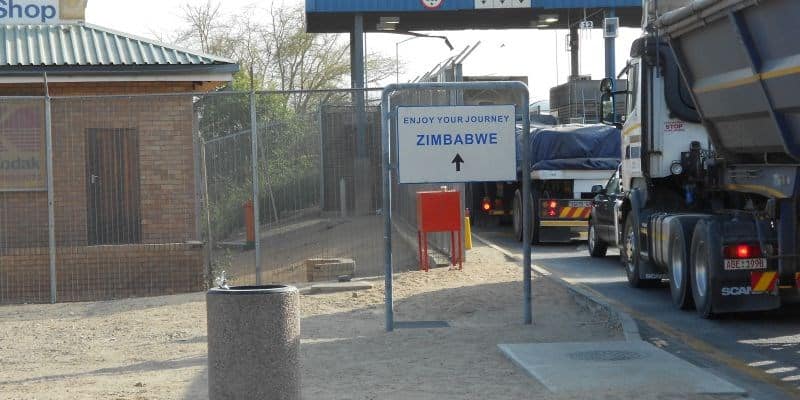
The Zimbabwean government has introduced new stringent rules governing the movement of cross border truck drivers as they drive through the country to its neighbours, state newspaper The Chronicle reported.
The new regulations governing drivers of essential cargo trucks are contained in Statutory Instrument 93 of 2020 released on Sunday.
It is now mandatory for cross-border truck drivers to have functional thermometers, face masks and hand sanitisers as it intensifies measures to fight Covid-19.
Truck drivers have been barred from leaving their trucks anywhere in transit except at border posts, truck stops and their destinations.
According to the new regulations, goods vehicles in transit engaged in an essential service must have a thermometer for measuring body temperature, sufficient face masks for the driver and any member of the crew, sufficient hand sanitising fluid or disinfectant, and at least one receptacle for dispensing fluids or disinfectants.
The regulations state that a driver must submit to being sanitised or disinfected in the manner required by an enforcement officer at the border post.
Drivers who will be stopping in the country for more than 24hrs will be quarantined at designated facilities for the duration.
“The driver of the goods vehicle must not stop except at a border post, or a designated truck stop, and at such post or stop the driver and every member of the crew of such vehicle must remain in the vehicle and may only temporarily leave therefrom (and in that event without violating the social distancing rule) for the purpose of, using ablution facilities, assisting in refuelling their vehicles while inside the forecourt of the fuel outlet.”
If the driver or any member of the crew requires food or other basic necessities, the driver or crew member must not disembark from the vehicle but must get the items through attendants at border posts or designated truck stops.
“In the case of drivers of cross border goods vehicles, enforcement officers at the border or designated truck stop where the goods are offloaded must disinfect the goods and the premises at which they are offloaded as soon as possible after the offloading, every driver and every member of the crew of a transit goods vehicle or cross-border goods vehicle requiring to remain in Zimbabwe for a period in excess of 24 hours must proceed to and remain at a place of quarantine at the border post, designated truck stop or other place designated by an enforcement officer until departure (or if any such member is infected with Covid-19, a place of isolation), every driver and every member of the crew of a transit goods vehicle or cross-border goods vehicle who, being a citizen or resident of Zimbabwe, returns to Zimbabwe upon delivery of the goods in question, shall be treated as a returning citizen or resident for the purposes,” reads part of the regulations.
A red flag had been raised over cross-border truck drivers passing through the country from South Africa due to the threat of COVID-19.
Truck drivers are allowed to cross borders, from which other forms of traffic have been banned.
The move is meant to ensure that the countries have adequate stocks of essential goods.
Ms Sithandiwe Ncube said there is need for constant screening of the drivers at the stoppage sites.
Although Zimra announced at the start of the first three-week lockdown that streamlined processes at Beitbridge for clearing cargo shipments that rely on high-level compliance and minimum human contact will be in place, Ms Ncube said the stopping of the cross-border truck drivers at truck inns and towns to rest was aggravating the country’s vulnerability to Covid-19.
“As a province, we are worried about the issue of truck drivers coming out to stop at towns en-route to their final destination.
“We understand they are screened as they get into the country but as a province which is on the way as they pass through, we feel more screening and tests should be done as they stop to rest,” said Ms Ncube.
Ms Ncube added that truck drivers seek the services of sex workers thereby defying the social distancing rule.
“Wherever they rest, who knows who these people sleep with. There are a number of women who like to entertain truck drivers.
“The contact that happens makes all social distancing impossible. These women are left to interact with other people in their communities,” said Ms Ncube.
She said her office had engaged local authorities to formulate measures to ensure truck drivers are under surveillance.
Ms Ncube urged truck drivers to shun sex workers at business centres and truck inns along the highway as these were potential coronavirus hotspots.






